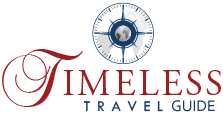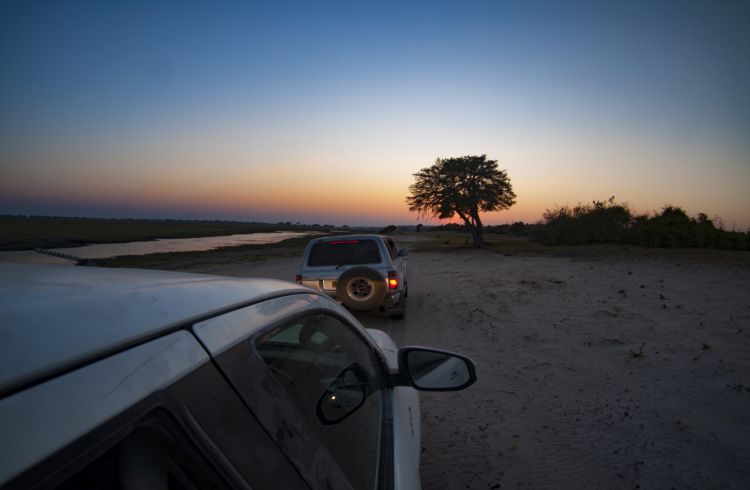Officially the Republic of Uganda, is a landlocked country in East Africa. Uganda is bordered on the east by Kenya, on the north by South Sudan, on the west by the Democratic Republic of the Congo, on the southwest by Rwanda, and on the south by Tanzania. The southern part of the country includes a substantial portion of Lake Victoria, shared with Kenya and Tanzania.
IMPORTANT TRAVEL INFORMATION AND FACTS
Although it’s regarded as a year-round activity, the best time to visit Uganda for a gorilla trek is during the short dry season from mid-December to early February or over the long dry season months of June to September. These periods offer by far the easiest hiking conditions and the lowest malaria risk.
For a gorilla trek, there are 3 levels of tracking, light, medium and strenuous. The less physically fit and elderly are given the lighter hike option, this takes less than an hour or two to get to the gorillas. You need to be fairly fit, equipped for the humid, muddy conditions of a rainforest hike, and in good health – gorillas are susceptible to human illnesses but don’t have our immunities, which means a common cold can be deadly to a whole family of gorillas and you won’t be permitted to trek if you are unwell.
Even in the dry season, the rainforest is a challenging environment: it’s humid, wet and muddy with some steep slopes, plenty of insects and thick vegetation. It is absolutely worth the effort to spend time with gorillas in the wild, but be prepared to exert yourself on the trek. Your professional guide and tracker lead you into the forest’s secret paths, looking for a habituated gorilla family.
Once found, you’ll approach the gorillas quietly and settle down to observe them from between 7 and 10m (22 to 32 ft) away. You’ll spend between 40 minutes and an hour with the gorillas, watching the adults forage and groom each other while the babies tumble and play. You’ll be under the watchful gaze of the great silverback patriarch, whose soft brown eyes constantly sweep over his family protectively. Witnessing gorilla’s express typically human gestures and emotions is a truly profound experience and one of the reasons that gorilla trekking is such a life changing encounter.
In the Congo, you’ll don a face mask to protect the gorillas from human germs and have an optional fly net to keep the harmless (and stingless) but determined sweat bees from disturbing you. In Uganda and Rwanda, you’ll leave any personal items or bottled water you’re carrying with your porters and approach the gorillas with only your camera. You are not allowed to use a flash and it’s best to use a camera that doesn’t make loud clicks, whirring or other mechanical noises.
Passport and Visas:
A valid passport is mandatory. Visas, please check what visa is required, depending on what passport you are travelling with. Please ensure you have 6 months from your date of return valid on your passport and at least two blank pages per country you are visiting. It is the responsibility of the traveller to ensure they have the necessary visa and valid travel document, African Fusion Travel, will not be held responsible for wrong documentation.
Health:
A certificate of yellow-fever vaccination is compulsory. Much of Rwanda lies at too high an elevation for malaria to be a concern, but the disease is present and prophylactic drugs are strongly recommended. It is advisable not to drink tap water. Bottled mineral water can be bought in all towns.
Travel Insurance:
Please ensure you are adequately insured, particularly for health and medical evacuation purposes.
Money:
The unit of currency is the Rwanda franc, which traded at around US$1 = Rfr 400-450 in September 2000. The US dollar is the hard currency of reference. It may be impossible to exchange travellers’ cheques at a good rate (or at all) away from the capital.
Tipping:
In Uganda and Rwanda, it is customary to tip your driver/guide at the end of a safari or hike, as well as a cook or porter that accompanies you. A figure if roughly $5 per day would be a fair benchmark, though check this with your safari company in advance. I see no reason why you shouldn’t give a bigger or smaller tip based on the quality of service. It is not essential to tip the guides who take you around in national parks and other reserves, but it is recommended, and the money will be greatly appreciated by the recipient.
The thing to remember is that whoever you tip in USD will not get the sum of money you intend to give. The exchange of USD is not an exact science, the rate given depends on both the age of the note and the size of the note. The newest and biggest denomination note will attract the best rate. A $1 bill will attract an absolute rubbish rate no matter how many you have. A Rwandan / Ugandan will be happy to receive a tip in whatever currency you want to use but for day to day living they prefer their local currency. If you tip them with dollars the first thing they do is go to the forex to negotiate the best rate available, either that or try and sell them to back to you. So at the end of the day if all you have is USD or GBP or Euro then use that currency but the best option for the recipient is the local currency (Uganda Shilling or Rwandan franc). But please please, please don’t do what some people do, tip using foreign coins, particularly one pound or one euro coins as they have no value at all and yes some people do it.
It is customary to tip for service in local bars and restaurants, though you may sometimes want to leave a tip (in fact, given the difficulty of finding change in Uganda), you may particularly be forced into doing this in some circumstances. A tip of 5% would be very acceptable and 10% generous. Generally any restaurant that caters primarily for tourists and to wealthy Ugandans/ Rwandese residents will automatically add a service charge to the bill, but since there’s no telling where that service charge ends up, it would be reasonable to reward good service with a cash tip.
What to Wear:
Finding the right clothes for your gorilla safari to Uganda and Rwanda is not always hard, but equally important. Remember this is Africa and the mountain gorillas live the Bwindi Forest or the Volcanoes in Rwanda where the weather is very unpredictable! It almost rains every now and then. So you can imagine the steep and often slippery hills…you get the idea!
Rain Jacket on for a Gorilla Safari: A Rain Jacket or fleece should be on your top priority! It rains almost all the time in Bwindi and Volcanoes National Park. I have seen some tourists come up with a cheap poncho…very useful. Please consider carrying a light weight jacket here.
Long pants in a Rwanda / Uganda Gorilla Trek: Fully gorilla trek wear. You have read it clear, long pants!! Short pants is a no in this area! We do not recommend jeans since everything here gets wet!! I am sure you wouldn’t love those bulky tiring wet jeans as you look out for the gorillas. The quick dry pants are the BEST! You will have guaranteed protection from branches, nettles and the thorns.
Footwear:
Gorilla safari shoes: We recommend boots for foot wear, since you need to cover above the ankle. There are some deep mud as you trek in the impenetrable forests. In Uganda or Rwanda, you can ask for knee-high rubber wellies, called gum boots. Hiking boots are good for the steep terrain sometimes full of vines depending on the gorilla family which you are visiting. Even the gorilla rangers in Uganda and Rwanda will be covered in rubber boots, locally called the gum boots. So do not think about the sandals, cool white sneakers or trendy shoes, they just won’t survive the forest. Take note that the boots should be light weight for the sake of stability on the steep hills as well as support and traction. Please note that when you do not put on the recommended shoes, its easy to hurt yourself by sliding all over.
Socks: Anything woollen/bamboo is cool. Covering Hands: Gardening gloves, usually building gloves are the best, you can as well try the gardening gloves particularly made of cotton. Please note that these must be padded on the fingers and palms, sometimes you have to cling unto those wet vines!
Summary of Packing List:
Lightweight raincoat
Hiking boots
Cap/hat Sweater (chilly evenings)
Camera (no flashes allowd)
Waterproof plastic bag (ZIPLOC bags work a treat on these trips) (to wrap your camera in)
Putting on the right clothing to see the mountain gorillas of Uganda and Rwanda is always necessary if you are to have the maximum fun while visiting the gorillas. Most tourists usually do not care about the clothes they put on but since you are lucky to have read this information, you should be well equipped to have the gorilla trekking experience in Africa.
What to Bring:
A pair of binoculars will greatly enhance game drives and forest walks, as will a good field guide – for birders, Van Perlo’s Illustrated Checklist to the Birds of Eastern Africa is the only guide to describe all the species found in Rwanda. Bring a camera. Toiletries and other essentials can be bought in the cities, but it is easier to bring all you need with you.
Electricity:
230/240 volts at 50Hz.
Language:
In addition to the indigenous language of Kinyarwanda, French and English are official languages. French is widely spoken throughout the country. In the capital and other tourist centres, many people speak English.
Food:
Good western food with a discernible Belgian influence is served in tourist-oriented restaurants and hotels in all centres. Rwandan favourites include goat kebabs, grilled tilapia (a lake fish), ugali (a stiff maize porridge), matooke (cooked banana) and potatoes.
Banking and Business Hours:
Most banks, shops and offices are open from 8am to 5pm on weekdays, with a lunch break being taken between noon and 2pm. Banks are open from 8am to noon on Saturdays





